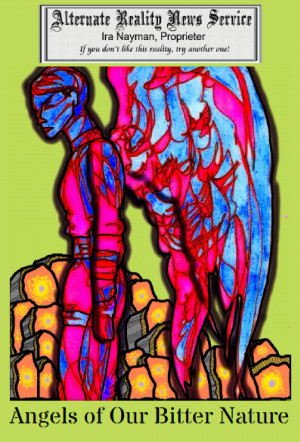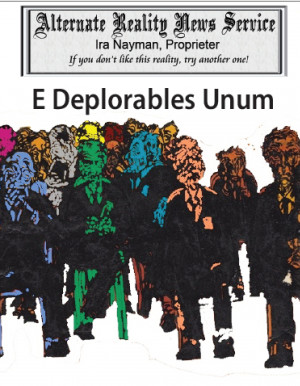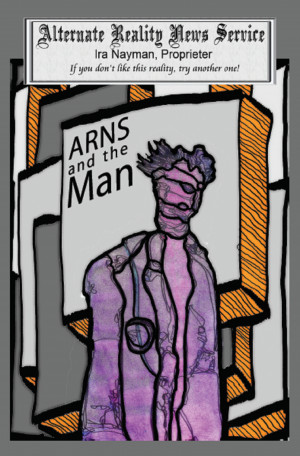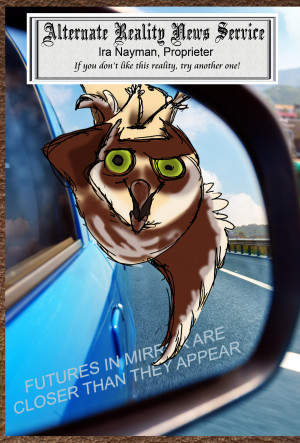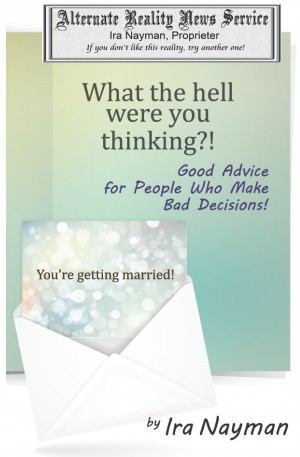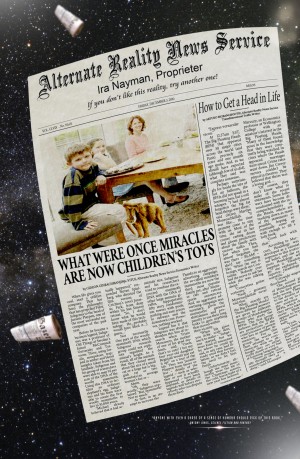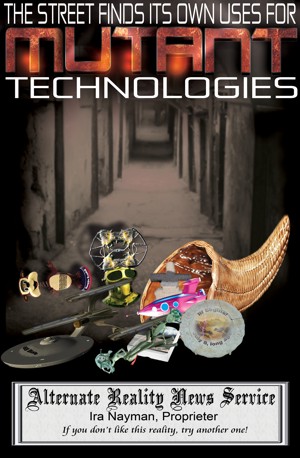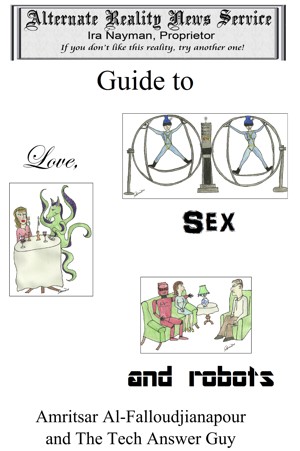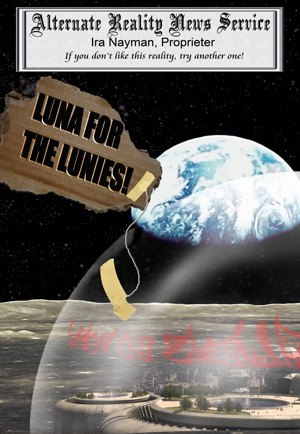Share with Friends
Interview with Ira Nayman
Published 2013-09-02.
Smashwords Interviews are created by the profiled author or publisher.
Books by This Author
Angels of Our Bitter Nature
by Ira Nayman
Series: The Alternate Reality News Service, Book 9.
Price:
$1.99 USD.
Words: 72,730.
Language:
English.
Published: April 7, 2020
.
Categories:
Fiction » Humor & comedy » Satire
Two and a half years into the presidency of Ronald McDruhitmumpf the scandals kind of meld together into a political scientist's worst nightmare. Or best research subject...
Angels of Our Bitter Nature is the final book in the Vesampucceri trilogy, which includes ARNS and the Man and E Deplorables Unum. Collect the whole set!
E Deplorables Unum
by Ira Nayman
Series: The Alternate Reality News Service, Book 8.
Price:
$1.99 USD.
Words: 68,720.
Language:
English.
Published: April 6, 2020
.
Categories:
Fiction » Humor & comedy » Satire
"Nobody said reporting from Earth Prime 1-6-7-1-8-2 dash psi, where the United States of Vesampucceri is the world's leading idiotocracy, was going to be easy." E Deplorables Unum is the second book in Ira Nayman's Alternate Reality News Service Vesampucceri trilogy - collect the whole set!
ARNS and the Man
by Ira Nayman
Series: The Alternate Reality News Service, Book 7.
Price:
$0.99 USD.
Words: 71,960.
Language:
English.
Published: April 1, 2018
.
Categories:
Fiction » Humor & comedy » Satire, Fiction » Science fiction » General
The Alternate Reality News Service sends reporters to other dimensions and has them write news articles about what they find there. In ARNS and the Man, journalists focus on the United States of Vesampucceri, the world's foremost idiotocracy (government by of the stupidest, by the stupidest, for the stupidest). "Amusing, sardonic political and social satire..." John Shirley
Futures in Mirror Are Closer Than They Appear
by Ira Nayman
Series: The Alternate Reality News Service, Book 6.
Price:
$0.99 USD.
Words: 69,680.
Language:
English.
Published: March 14, 2018
.
Categories:
Fiction » Humor & comedy » Satire, Fiction » Science fiction » General
The seventh collection of Alternate Reality News Service articles. The series has been described as "A science fiction version of The Onion."
What the Hell Were You Thinking?: Good Advice for People Who Make Bad Decisions
by Ira Nayman
Series: The Alternate Reality News Service, Book 5.
Price:
$0.99 USD.
Words: 68,580.
Language:
English.
Published: May 15, 2015
.
Categories:
Fiction » Humor & comedy » Satire
The sixth collection of Alternate Reality News Service articles is the second to feature the advice columns of Amritsar and The Tech Answer Guy. This humourous science fiction journalism may not be as good as your mom's chicken soup, but at least it won't nag you to tell it when you're going to get married!
What Were Once Miracles Are Now Children's Toys
by Ira Nayman
Series: The Alternate Reality News Service, Book 1.
Price:
$1.99 USD.
Words: 72,630.
Language:
English.
Published: March 4, 2015
.
Categories:
Fiction » Humor & comedy » Satire, Fiction » Science fiction » General
The second collection of Alternate Reality News Service articles. Big floating heads! Conscious cars that tell their owners when the mechanic from the garage down the street is ripping them off! Women suing General Motors for paternity! Now, more than ever, if you don't like this reality, try another one!
The Street Finds Its Own Uses for Mutant Technologies
by Ira Nayman
Series: The Alternate Reality News Service, Book 3.
Price:
$2.99 USD.
Words: 67,810.
Language:
English.
Published: June 23, 2013
.
Categories:
Fiction » Humor & comedy » Satire
The Alternate Reality News Service is proud to announce the publication of The Street Finds Its Own Uses for Mutant Technologies, its latest collection of paper cutting edge journalism! Oww! Better put some disinfectant on that reportage!
The Alternate Reality News Service's Guide to Love, Sex and Robots
by Ira Nayman
Series: The Alternate Reality News Service, Book 4.
Price:
$2.99 USD.
Words: 68,040.
Language:
English.
Published: June 21, 2013
.
Categories:
Fiction » Humor & comedy » Satire
When the craziness of the modern world affects your relationship with your life mate, your offspring, your other family members, your auto mechanic or your AI-enhanced toaster oven, it can be hard to know what to do. When relationships get so confusing that the federal tax code starts to make sense, who can you turn to for help? The Alternate Reality News Service’s advice columnists, of course.
Luna for the Lunies!
by Ira Nayman
Series: The Alternate Reality News Service, Book 2.
Price:
$3.99 USD.
Words: 72,070.
Language:
English.
Published: January 24, 2012
.
Categories:
Fiction » Science fiction » Short stories
Luna for the Lunies! is the third collection of Alternate Reality News Service stories. Robots who rue their consciousness! Alien invasions foiled by bureaucrats! A successful conclusion to the war on squirrels! Humorous science fiction journalism has never been so...so...science fictiony!

